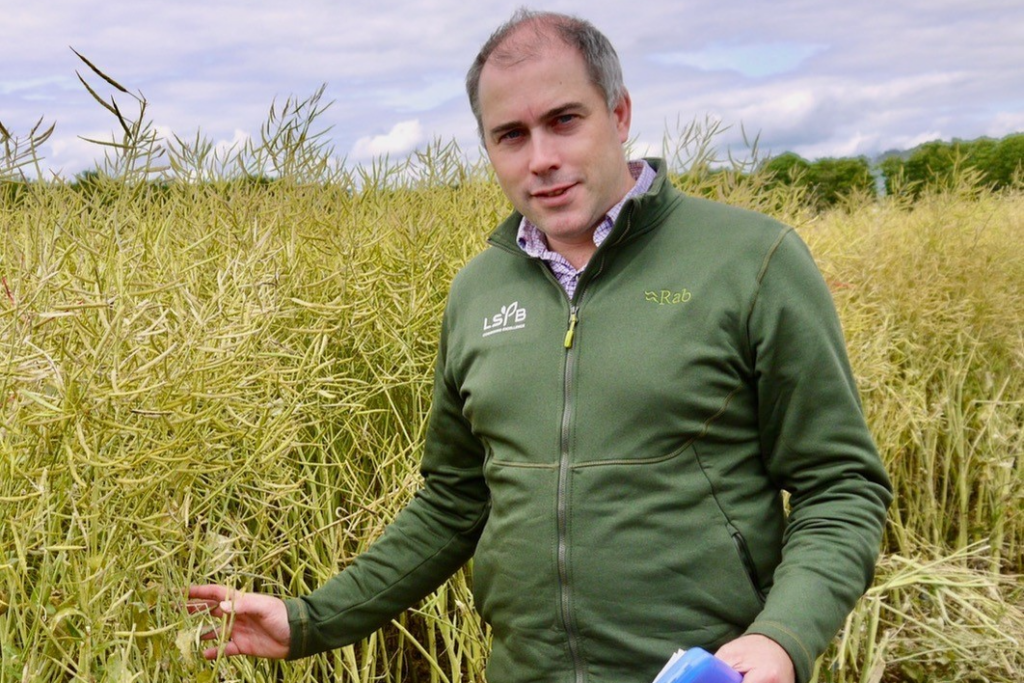Genetic improvements to OSR varieties offer greater resistance to major diseases
7th August 2023
Emerging OSR varieties with improved genetics that keep plant stems healthy are offering growers increased resistance to yield-robbing diseases such as phoma, light leaf spot and verticillium, according to LSPB managing director Chris Guest.
“Phoma resistance has taken a major step forward with the launch of RlmS by LSPB in 2021 and four of our varieties with RlmS – Murray, Vegas, Flemming and Respect – are on the AHDB Recommended List (RL) and available to growers now,” Mr Guest explained.
“They provide an important complementary resistance to that of Rlm7 which has been the mainstay for some years. RlmS has a different genetic background – an adult stem-based resistance – unlike Rlm7 which acts on the cotyledons.”
He added RlmS resistance is also linked to strong overall plant health, and provides especially good stem resistance against late season diseases.
“We will bring further varieties with RlmS resistance, some already in trials and others in the pipeline, to complement Rlm7 and give longevity of phoma resistance to growers,” Mr Guest revealed.
Light leaf spot infection comes from trash in the autumn and, after a latent period of two to three months, starts its most damaging development in the spring, producing stem and pod infection, with most sources quoting a significant potential yield loss of around 1t/ha.
There are three major gene resistances associated with the disease, and the different mechanisms stop initial infections, stop conidial production and cycling and reduce overall growth of the fungus.
There is a strong correlation between yield and light leaf spot resistance – and as such this should be a key focus for growers thinking of oilseed rape for harvest 2024.
Varietal ratings on the RL have shown a steady upwards trend with LSPB’s Turing at the top of the RL for the UK (both East/West and North regions) scoring a ‘7’, closely followed by Vegas with an ‘8’ and Murray in the East/West region with a ‘7’.
Verticillium also has a significant impact on yield, with loss figures of 12-24% quoted in one AHDB study.
While there are currently no official ratings on the RL for verticillium, LSPB’s private trial in Cambridge gives a sobering measure of its effects, showing it is a disease that is probably having greater yield losses than is currently recognised, which has been seen consistently in both harvest 21 and harvest 22 trials.
The results highlight Turing, Murray and Fleming with excellent resistance to Verticillium, yielding between 6.1 and 6.7t/ha as opposed to other varieties in this trial with poorer resistance yielding more than 10% lower.
Mr Guest said stem health should be a key consideration when choosing varieties to plant in the upcoming season, adding that LSPB is well placed with their current genetics to offer growers a robust selection, with more varieties in the pipeline.
“Many growers focus on TuYV or pod shatter resistance, and whilst these are key considerations, diseases such as light leaf spot and verticillium can be more significant in yield loss – and therefore having a balanced portfolio of varieties in the rotation should be part of all growers plans,” he concluded.

